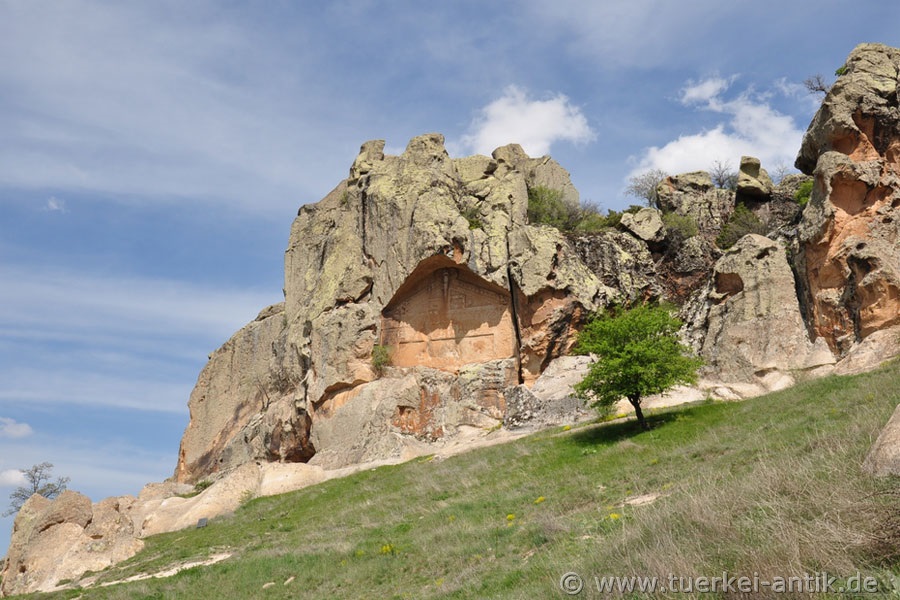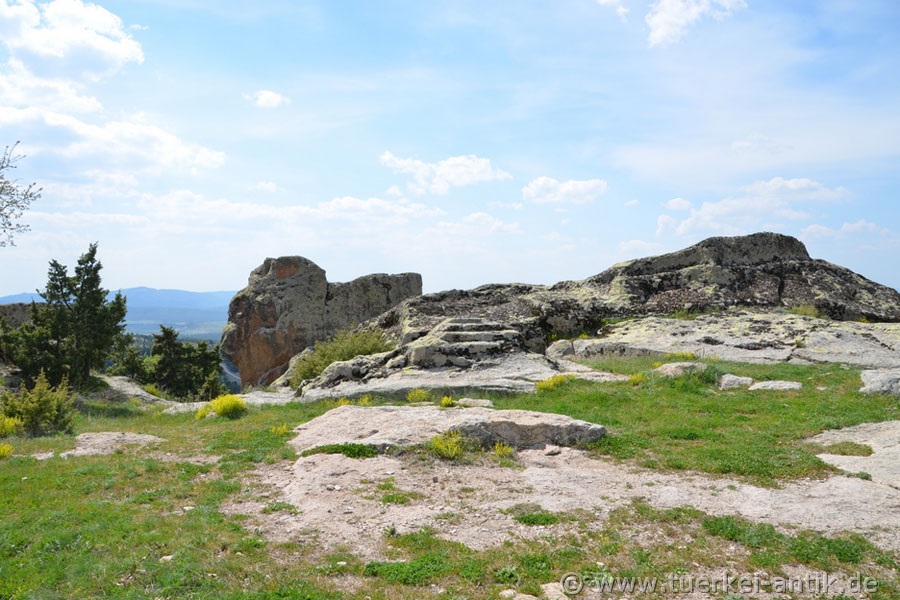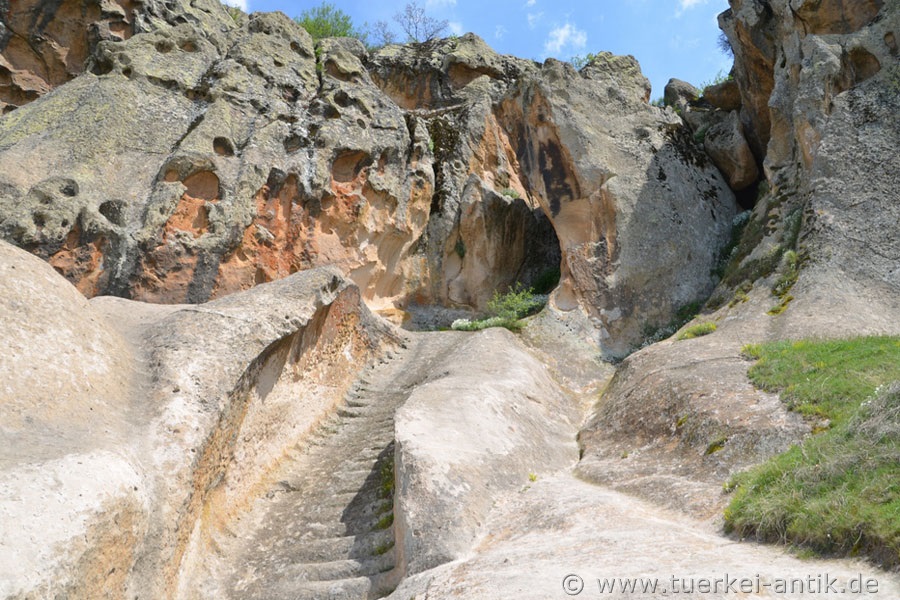 |
| Midas Şehir in Phrygia | |||
|
|
|
||
| The village Yazılıkaya with the Midas monument | |||
|
Midas Şehir (Midas City) is, besides Gordion, one of the most important Phrygian ruins in the highlands, northeast of the provincial capital Afyonkarahisar. |
|||
|
|
|||
| In the village Yazılıkaya (rock described) | |||
|
|
|||
|
|
|||
|
The so-called Midas monument was probably part of a place of worship for the goddess Kybele. It is located on a wall of the high plateau, on the walls of which there are other, partly incomplete monuments. |
|||
|
|
|||
|
|
|||
|
The name Midas City is based on the last signs of the Phrygian inscription on the Midas monument, which can be identified as Midas. It has not yet been proven that the legendary King Midas was the ruler of this city on the high plateau. |
|||
|
|
|||
| Settlement mounds from pre-Byzantine times | |||
|
|
|||
|
Next to the Midas monument is a pre-Byzantine settlement hill, which has been used over the centuries as a living and shelter space, a grain storage site and a burial site. |
|||
|
|
|||
|
|
|||
|
Room in the settlement mound |
|||
|
|
|||
 |
|||
|
The unfinished façade Küçük Yazılıkaya |
|||
|
|
|||
|
On the north wall there is a second, unfinished façade (Küçük Yazılıkaya) and some altars. On the high plateau there is a so-called Midas throne with Phrygian inscriptions. |
|||
 |
|||
| On the Acropolis | |||
|
|
|||
|
Staircase to a cistern |
|||
| Photos: @chim, Monika P., Izabela Miszczak | |||
| Translation aid: www.DeepL.com/Translator | |||
| Source: Wikipedia and others | |||
|
|
|||


